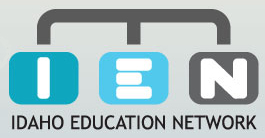Internet
Idaho Schools Scramble when Broadband Contracts Voided
- By Dian Schaffhauser
- 03/02/15
 Idaho school districts are scrambling to make sure they have Internet broadband after a court case threw out the agreements they had with their Internet service providers.
Idaho school districts are scrambling to make sure they have Internet broadband after a court case threw out the agreements they had with their Internet service providers.
As coverage in the Idaho Statesman explained, the saga started in 2008 when the Idaho legislature established the Idaho Education Network (IEN) project to lay cabling and deliver broadband to schools and multiple state agencies. Later that year the state issued a request for proposal to build the network. Out of four bids, the lowest came in from the IEN Alliance, a partnership between Idaho-based Syringa Networks and Education Networks of America (ENA), a Tennessee company that helps schools and libraries obtain funding through the Federal Communications Commission's E-rate program. E-rate funds were expected to cover about three-quarters of the operating costs for the network.
The state ended up granting the work to two bidders, the alliance and Qwest (now part of CenturyLink). The idea was that the two organizations would vie within each market for various pieces of the work. However, the contract was later amended to cut out the alliance altogether. Syringa sued the state in 2009 for violating its own purchasing laws. Several parts of that case were eventually dismissed by the Idaho Supreme Court, but it allowed the challenge to the Department of Administration (ADM), the organization that awarded the work to Qwest, to proceed. Eventually, the case was remanded to district court.
By early 2013 the Qwest contract was canceled entirely. The court called out one former state employee, the individual who ran the DOE, in particular as instrumental in bending the contracting rules to favor Qwest. At about the same time the FCC canceled its funding of the IEN project, a decision probably tied to the suit.
During the same period, the state's Department of Education and the DOE issued an RFP for a five- to 20-year Idaho high school managed wireless project. That contract was issued to ENA, which already was managing the IEN and would base much of its wireless connectivity on the wired infrastructure already in place.
The state legislature found out about the cancellation of E-rate dollars in January 2014, when the current head of the Department of Administration sought an unexpected $14.5 million to keep IEN running. In response, lawmakers allocated $4.8 million to make broadband available in schools until the 2015 legislative session.
State leaders attempted to negotiate with the FCC on E-rate funding, but those efforts have gone nowhere so far. In November a district judge officially declared both sizable IEN contracts null and void. That's when the trouble started for the districts.
By February CenturyLink demanded payment from the state for its services (a futile exercise since Idaho law prohibits vendor payments under canceled contracts) and threatened to turn off school broadband within a couple of days. The company was owed $1.5 million in back payments by the state and lead contractor ENA. "Given the high cost of these services, we cannot provide service indefinitely when we're not being paid," said a company spokesman in a statement made available to Idaho Education News.
The company later extended the deadline, and the state faced the prospect of losing services as of Feb. 27. Just days before that deadline the Idaho Senate passed a bill to give $3.6 million to the Superintendent of Public Instruction to distribute to districts as a stopgap measure to cover broadband expense and technical assistance until the end of July. The Department of Ed also encouraged schools to file for "critical" E-rate funding for FY16.
Some schools have turned back to Syringa for the same services it was initially contracted to provide years earlier before its state contract was pulled. For example, McCall-Donnelly School District's Technology Director, Matt Cavallin, contacted the firm along with several other providers after the ruling was announced. "Once we heard that our main broadband connection might be shut down, I knew we needed to do something right away," he said in a statement. "Syringa had the best price, and today we have a 100 Mb internet connection up and running smoothly. That's an extremely quick turnaround for something like this."
In the meantime, Syringa and five other organizations have told the state through a request-for-information process that they're interested in vying for a new IEN contract, which will go into effect in 2016. CenturyLink was not among them. The state is expected to solicit formal bids in June. Or it may decide not to continue with a carrier-owned network at all.
About the Author
Dian Schaffhauser is a former senior contributing editor for 1105 Media's education publications THE Journal, Campus Technology and Spaces4Learning.